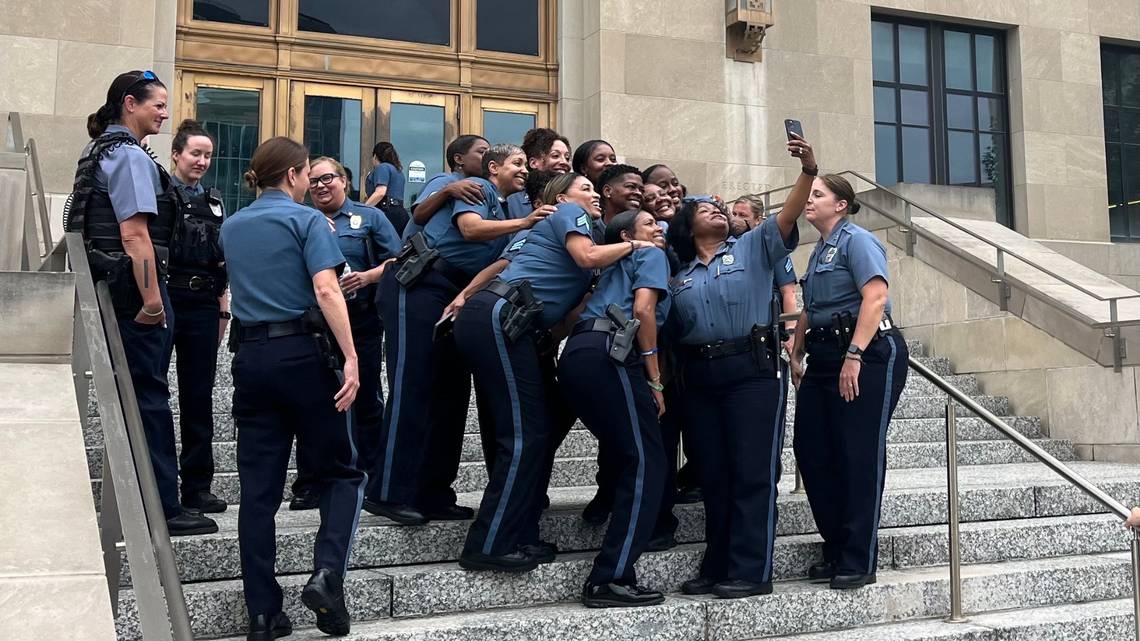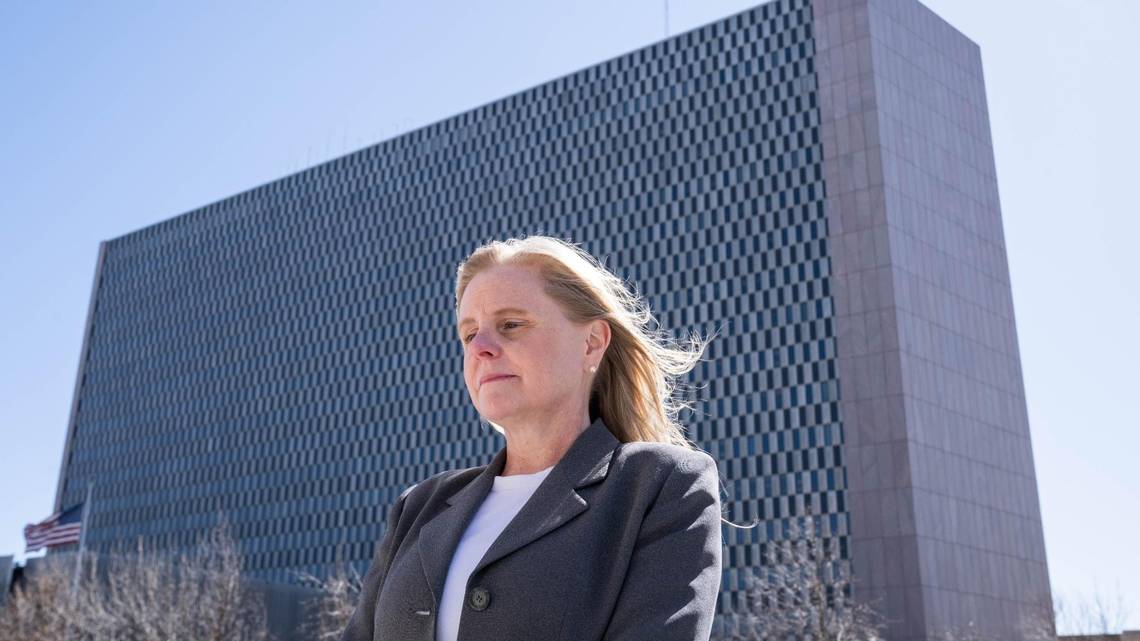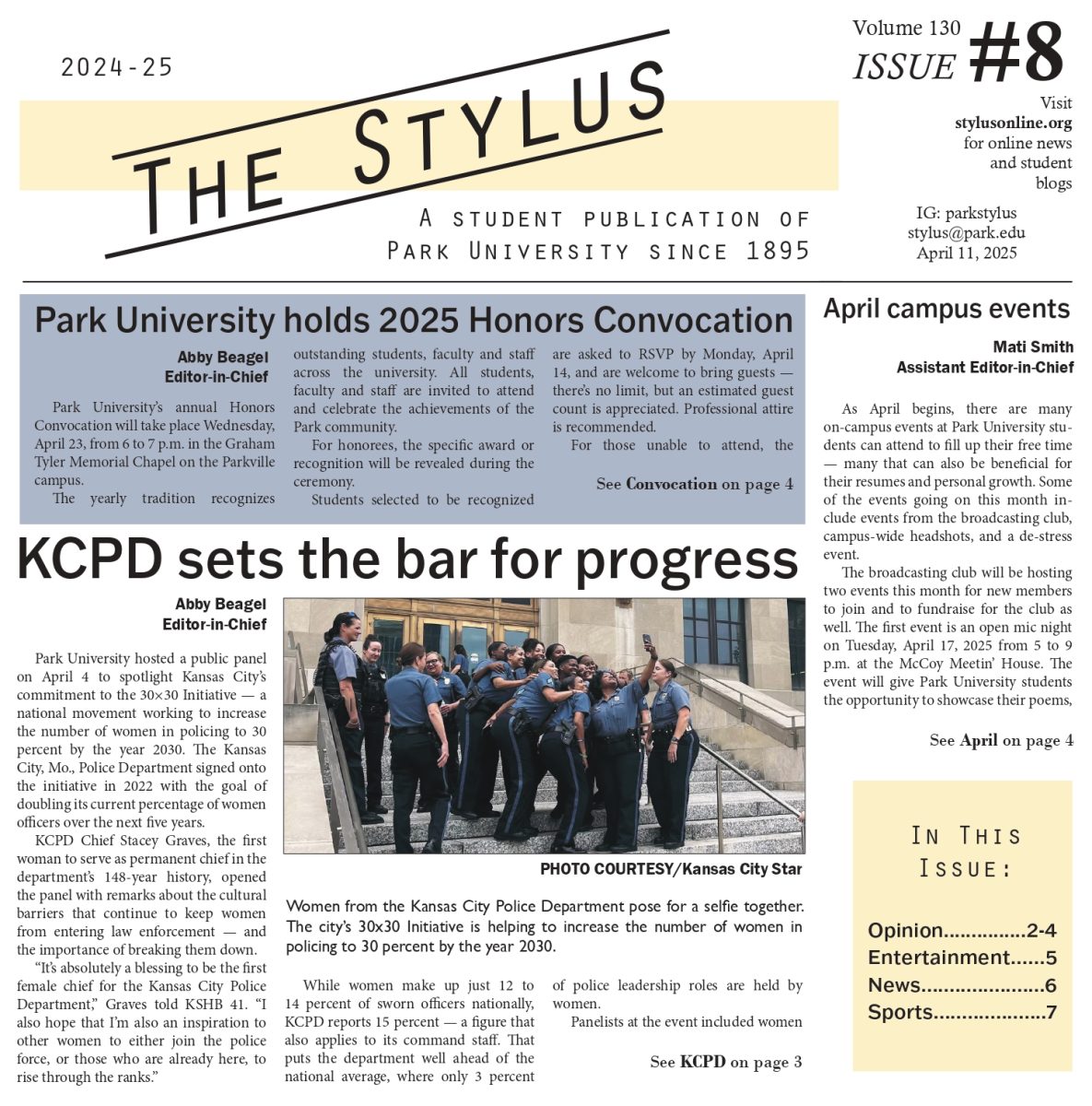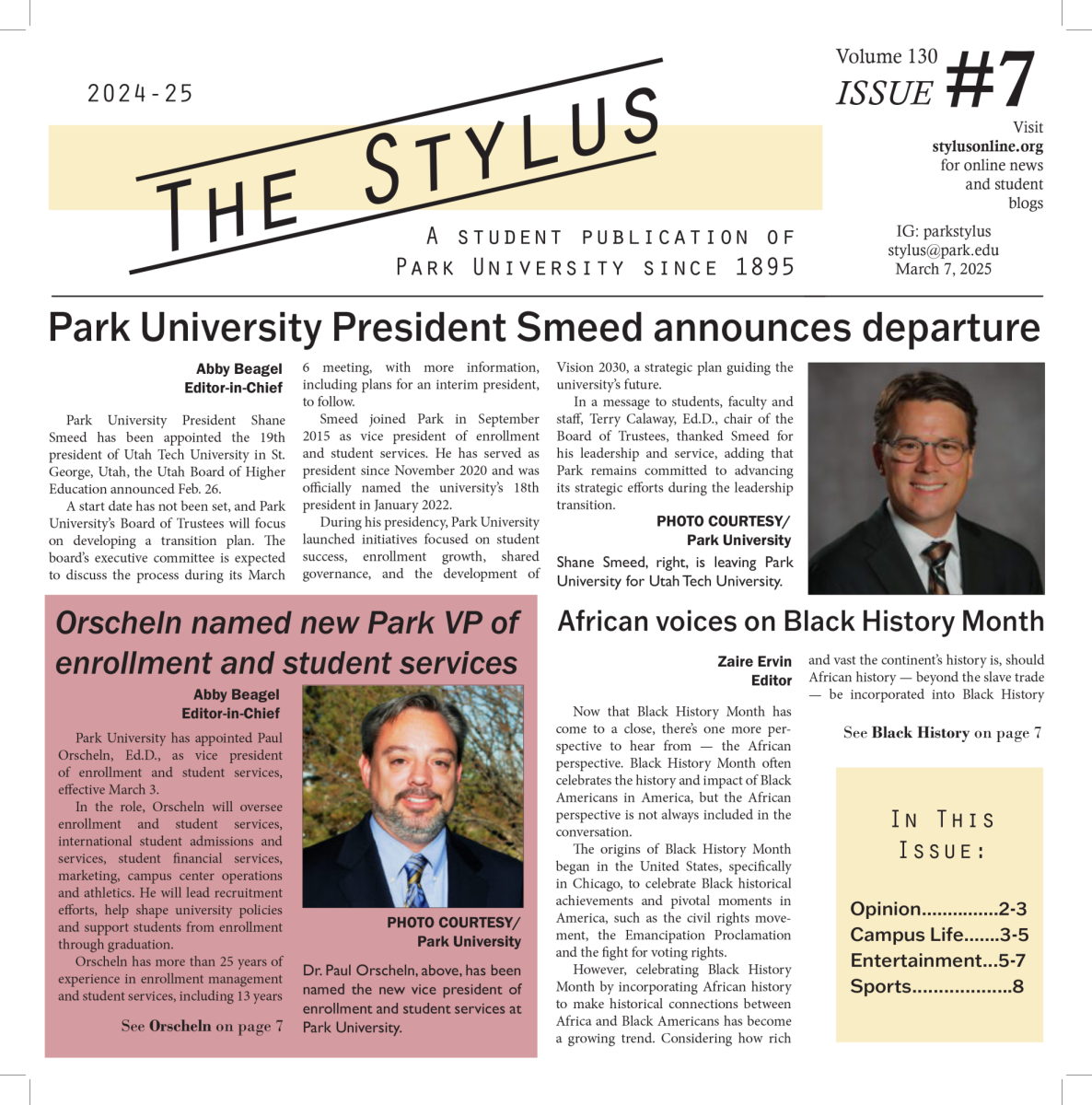It was a summer of political upheavals all over the world. One nation that was rocked with protests was Brazil. Given Park University’s multinational nature, there were bound to be students directly affected with the protests. Two such students are Michelle Lima Sa and Fabio Peixoto. This week “The Stylus” focuses on Michelle Lima Sa’s summer of protest.
Lima Sa comes from Recife in the north eastern part of Brazil. She is a senior majoring in psychology. Social class is usually the main determinant in Brazilian politics. Lima Sa comes from an upper middle class family. Despite this, like many of Brazil’s youth she neither embraces the politics of the left nor the right. Michelle
“I don’t have one because we are in a time when, at least my generation, we think that all sides are really corrupt,” she said. “We don’t decide on a party anymore until they decide to clean their house.”
The political cognitive dissonance may also come from the fact that Lima Sa was raised in a family that upheld right values but went to schools mostly taught by leftist teachers.
Lima Sa was part of the millions who poured on the streets of Brazilian towns to protest corruption and waste in government. The protests started over the public’s anger at a steep increase in bus fare prices. They soon morphed to encompass protests on overspending on the World Cup.
Next year Brazil is set to be host to soccer’s biggest extravaganza. The World Cup is larger than the Olympics. Half of the world’s population usually tunes in. The costs of new stadiums and infrastructure to support the event are usually enormous. Host countries are expected to be prepared to foot the bill when they submit their bid. There have been allegations though of spiraling budget costs and corruption.
Surprisingly Lima Sa’s parents were supportive of her participation in the protests. They encouraged her to go but did not attend with her.
“They said that they were too old for this kind of,” said Lima Sa. “If something happens you have the legs so you go.”
Lima Sa said she liked the first protest she went to, which took place on June 20, with protestors closing down most of Recife by choking its transit system. The protestors’ main intention was to close down the main bridges in the city.
However, Lima Sa said she did not like the second protest.
“When we got to a point where the police did not want us to go, they started getting rough, really rough,” she said. She also said she thought it had been hijacked by political parties that were trying to take over the movement. As a result, she left that protest earlier than she had planned.
Lima Sa is no stranger to civic engagement. She has signed petitions on the internet related to feminist causes around the world.
Additionally, Lima Sa said she has new feelings towards her home country.
“I was never proud to be Brazilian until that Thursday when I went to that first protest,” she said. “It was the first time I felt patriotic about my country. I had never felt like that.”
Lima Sa said Brazilians have a culture of not being patriotic especially the youth and they are dismissive of the politics in the country. She admits that the only time there is patriotism is at the soccer games but once the games are over, people remove their shirts and go home and forget about Brazil.
Lima Sa said she thinks that young people are taking the first step towards change by protesting. The second step is not to be corrupt, she said.
“We just want something that is very simple,” she said. “A government that is not corrupt.”
What Lima Sa wanted to really happen in the protests was the removal of Senate President Renan Calheiros, which did not happen. Calheiros is a longtime politician and currently holds the Senate President position for a third time. He has been embroiled in several corruption scandals over the years. At one time he was forced to resign from office and he has been accused of accepting money from a construction company that he used to pay for child support. Other charges that Calheiros has been investigated for are embezzlement and committing perjury.
Lima Sa signed a petition for the removal of Calheiros.
“There are people worse than him,” she said. “There are guys like that that should be in jail but they are in the congress.”
The bus fare as reduced a day after the protests in Recife and many similar protests that were held nationwide. Also, in the days after the protests, the Brazilian President Dilma Rousseff gave a major speech pledging reforms.
Lima Sa isn’t positive if the reforms will make a difference but she is optimistic.








